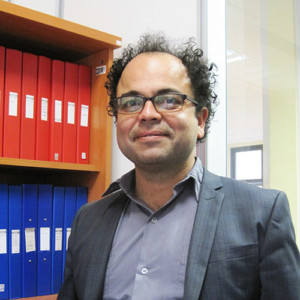Sub-topic 3. Means of implementation
This discussion is now closed. Thank you for your participation.
Moderators:
-
 Claudio Torres Slum Upgrading Consultant, Housing and Slum Upgrading Branch. UN-Habitat
Claudio Torres Slum Upgrading Consultant, Housing and Slum Upgrading Branch. UN-Habitat -
 Pireh Otieno Human Settlements Officer, Urban Basic Services Branch - UN-Habitat
Pireh Otieno Human Settlements Officer, Urban Basic Services Branch - UN-Habitat -
 Kulwant Singh Regional Advisor - UN-Habitat
Kulwant Singh Regional Advisor - UN-Habitat -
 Marcus Mayr Urban Planner, Climate Change Planning Unit, UN-Habitat
Marcus Mayr Urban Planner, Climate Change Planning Unit, UN-Habitat -
 Edmundo Werna Head of Unit at Sectoral Policies Dept. ILO
Edmundo Werna Head of Unit at Sectoral Policies Dept. ILO
Sub-topic 3. Means of implementation
107. We recognize that the implementation of the New Urban Agenda will require a wide range of means, tapping into all available traditional and innovative sources at the global, national, sub-national, and local levels as well as enhanced partnerships based on the principles of equity and solidarity with people that are the poorest and most vulnerable.
108. We reaffirm the commitments on means of implementation included in the 2030 Agenda as well as the Addis Ababa Action Agenda in order to support the New Urban Agenda and the promotion of sustainable urbanization.
109. We recognize that sustainable urban development, guided by national urban policies, as appropriate, rests on integrated national and international financing frameworks that are supported by an enabling environment at all levels. We acknowledge the importance of ensuring that financial means of implementation are firmly embedded into national legal and policy frameworks and adequate capacities are developed at all levels.
110. We will promote context-sensitive approaches in financing urbanization and in enhancing financial management capacities at all levels of government, adopting specific instruments and mechanisms necessary to achieve sustainable urban development, recognizing that each country has the primary responsibility for its own economic and social development.
111. We will mobilize endogenous resources and revenues generated through the capture of benefits of urbanization, as well as the catalyzing effects and maximized impact of public and private investments.
112. We will establish appropriate policies and capacities that will enable local governments to register and expand their potential revenue base, and to apply and collect user charges and fees to cover expenditure costs, while ensuring that women, poor households, and marginalized communities are not disproportionately affected.
113. We will implement a transparent system of financial transfers from national government to sub-national and local governments — based on national contexts, needs and priorities, and performance based incentives — providing them with adequate, timely and predictable resources to match their functions.
114. We will support the implementation of sound sub-national fiscal policies, increase local government autonomy over taxes, revenues, expenditures, and debt financing as appropriate and will implement mechanisms, as appropriate, to enable shared authority and financing between municipalities or metropolitan areas and national or sub-national governments agencies.
115. We will support the development of vertical and horizontal models of distribution of financial resources to decrease inequalities among territories and between urban and rural areas, as well as to promote integrated and balanced territorial development. In this regard, transparency of data on spending will be ensured to allow public analysis of resource allocation from national and sub-national governments as a tool to assess progress towards equity and spatial integration.
116. We will implement policy and legal frameworks to capture the increase in land and property value generated as a result of urban development processes and public investments. Measures will be put in place to prevent its solely private capture as well as land speculations, by introducing adequate taxation and site and city-wide redistribution of gains. We will ensure that efforts to generate land-based finance will not result in unsustainable or increased land use.
117. We will support the capacity development of local authorities in financial planning and management, anchored in a multilevel institutional coordination framework focusing on gender-responsive budgeting, accounting, procurement, reporting, auditing, and oversight, among others.
118. We will support local authorities to implement transparent and accountable expenditure control instruments, based on legislative control and public participation in support of open and fair tendering processes, procurement mechanisms and reliable budget execution, as well as preventive anti-corruption measures to promote integrity, accountability and proper management of public property.
119. We will establish robust regulatory frameworks for municipal borrowing, flanked by revenues and capacities and expressed by local creditworthiness as well as expanded sustainable municipal debt markets when appropriate. We will consider the establishment of appropriate financial intermediaries for urban financing, such as national or sub-national municipal development funds or national or sub-national development banks.
120. We will implement measures to reduce the cost of capital and stimulate private sector and households to participate in urban resilience programs and resilience-building efforts, including access to risk transfer mechanisms.
121. We will support access to different multilateral funds, including the Green Climate Fund, for cities to secure resources for climate change adaptation and mitigation plans, policies, programmes and actions. We will collaborate with local financial institutions to develop climate finance infrastructure solutions and to create appropriate mechanisms to identify catalytic financial instruments. We will collaborate with national and international insurance and reinsurance institutions to develop feasible solutions for future climate risks in cities, with regard to investments in urban infrastructures, urban assets as well as for local populations to secure their shelter and economic needs.
122. We will promote the use of appropriate multi-stakeholder partnerships in urban development processes, establishing clear and transparent legal and financial frameworks and administrative procedures, as well as planning guidelines for multi-stakeholder partnerships, and we will consider the establishment of technical units to advise municipalities on all aspects of partnerships and to provide systematic capacity development for local officials and stakeholders.
123. We will support international development cooperation initiatives including Official Development Assistance (ODA) among others, to catalyze new sources and promote further public and private investments for sustainable urban development, including by mitigating risks for potential investors. We will expand the opportunities for North-South, South-South and triangular regional and international cooperation as well as sub-national decentralized, and city-to-city cooperation, to contribute to sustainable urban development, sharing knowledge, and developing capacities.
124. We invite international and multilateral financial institutions, such as the World Bank Group and regional development banks, to consider the priorities of the New Urban Agenda in their infrastructure and development projects to developing countries.
125. We will promote capacity-building as a multifaceted approach that addresses the ability of multiple stakeholders and institutions at all levels of governance and combines the individual and institutional capacity to formulate, implement, manage, and enforce public policies towards sustainable urbanization.
126. We will promote the strengthening of the capacity of national, sub-national and local governments, including local government associations, to work with women, children and youth, older persons and persons with disabilities, indigenous peoples and those in vulnerable situations as well as with civil society, the academia and research institutions, in shaping organizational and institutional governance processes and promote inclusive public decision–making, in order to actively engage in and contribute to the implementation of the New Urban Agenda.
127. We will support capacity development programs to help local governments achieve targets and set the foundation, as appropriate, for transparent and independent oversight and monitoring processes to review local and municipal performance and compliance, with a focus on improvement and digitalization of the accounting process and records.
128. We will promote capacity development programs on the use of legal land-based revenue and financing tools as well as real estate market functioning for policymakers and local public officials focusing on the legal and economic foundations of value capture, including quantification, capturing and distribution of land value increments.
129. We will strengthen cooperation between sub-national and local governments and civil society as well as their existing networks to deliver on capacity development programmes by means of peer-to-peer learning, subject-matter related partnerships, and collaborative action such as inter-municipal cooperation, including the establishment of practitioners’ networks and other science-policy interface mechanisms.
130. We will support capacity development initiatives to empower and strengthen skills and abilities of the women, children and youth, older person and persons with disabilities, indigenous peoples and other people in vulnerable situations such as refugees, displaced persons and migrants to ensure their effective participation in urban development decision-making.
131. We will support local government associations as providers of capacity development and important instruments for knowledge sharing, promoting peer-to-peer exchange, and strengthening the involvement of local governments associations in national consultations on development priorities.
132. We will promote the development of national information and communications technology policies and e- government strategy as well as citizen-centric digital governance tools tapping into technological innovations, including capacity development programs, in order to make ICT accessible to the public, including persons with disabilities, older persons and other persons in vulnerable situations, to enable them to develop and exercise civic responsibility, broadening participation and fostering responsible governance. The use of on-line platforms and tools will be encouraged to improve access to urban services.
133. We will support institutionalized mechanisms for sharing and exchanging information, knowledge and expertise, including the collection, analysis and dissemination of geographically-based, community-collected and disaggregated data by income, gender, age, race, ethnicity, migratory status, disability, geographic location and other characteristics relevant in national and local contexts, as well as ensuring a robust science-policy interface in urban policy formulation.
134. We will strengthen the statistical capacities at national, subnational and local levels to effectively monitor progress achieved in the implementation of sustainable urban development, policies and strategies to inform appropriate reviews. Data collection procedures should be open, transparent and consistent with the purpose of upholding the right to privacy by ensuring the full and effective implementation of all obligations under international human rights law.
135. We will support the role and enhanced capacity of sub-national and local authorities in data collection, analysis and dissemination, promoting evidence-based governance, building on a shared knowledge base using both, globally-comparable as well as locally-generated disaggregated data by income, gender, age, race, ethnicity, migratory status, disability, geographic location and other characteristics relevant in national sub-national and local contexts.
136. We will foster the creation, promotion, and enhancement of open and participatory data platforms using technological and social tools available to transfer and share knowledge among national, sub-national, and local governments and other stakeholders, including non-state actors and people to enhance effective urban planning and management, efficiency, and transparency through e-governance, ICT-assisted approaches.
Please post your comments in the forum here or send to: support@habitat3.org
